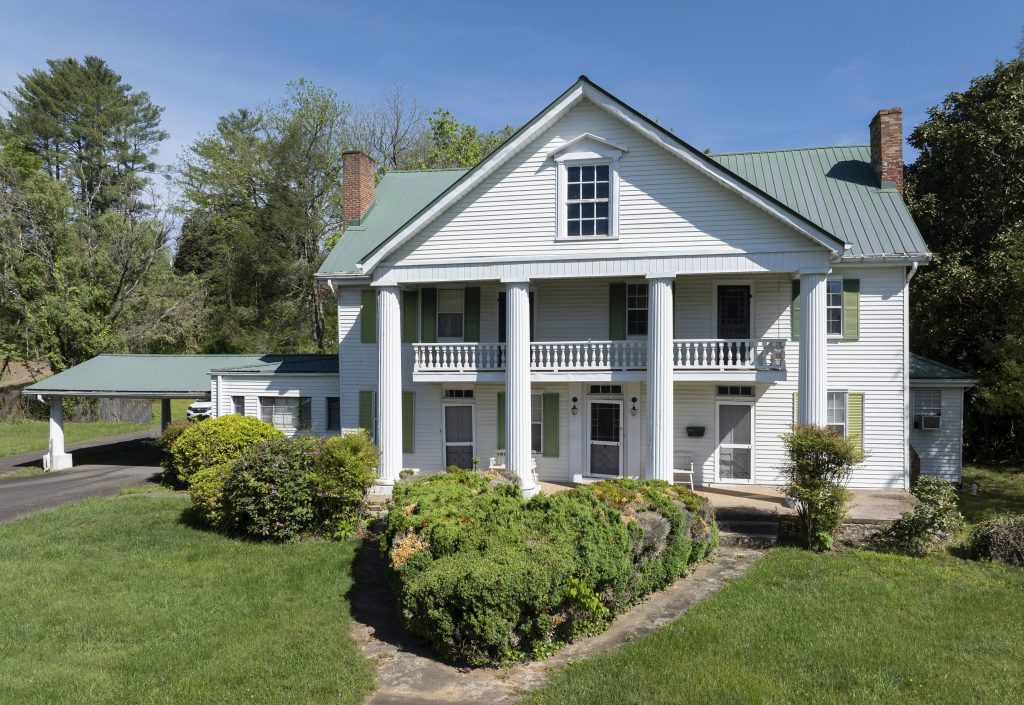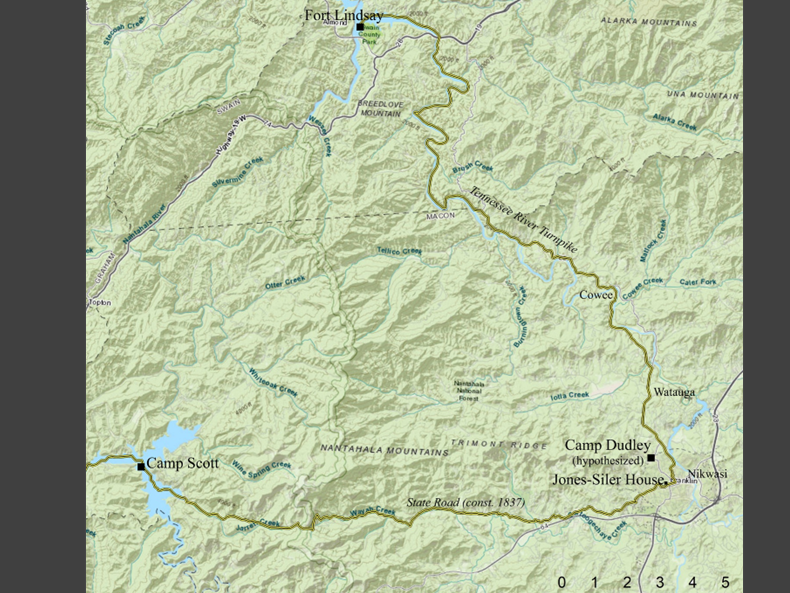
For more than two hundred years, the Siler/Jones House on East Main Street in Franklin has evolved—serving as a farmstead, a boarding house, a beacon of hospitality, and a home to generations of descendants of Franklin’s first white settler, Jesse R. Siler. It stood as a silent witness to history, and now, it will witness another change. Earlier this month, the Jones Family completed a plan to ensure the lasting legacy of the home by transferring “the House at the foot of the hill,” as it is affectionately known, to Mainspring Conservation Trust. The gift opens doors to a future of restoration, conservation, education, and invitation.
Dick Jones, who will turn 90 years old in May and grew up in the house, reflected on the family’s decision. “We had long discussions, including my wife, Melissa, our children, Laura and Fred and his wife, Jennifer, and our grandchildren about their dreams for the property’s future. We felt it was time to entrust this important piece of our family legacy, and really our community’s legacy, to an organization committed to preserving our collective cultural heritage.”

Back in 1820, Jesse Siler, a pioneer instrumental in shaping the modern-day town of Franklin, purchased the property from the State of North Carolina. Over the years, the humble log cabin that came with the land underwent considerable transformations. For more than 60 years, the home remained in the Siler family. This changed in 1888, when Jesse’s son, Julius Grady Siler, swapped properties with his Siler cousin, Harriett, and her husband, Judge George Jones. Under their care, the home was extensively renovated and extended. It has remained in the Jones family since then, witnessing the growth and demands of time and new generations of Jones families. The Siler/Jones home’s significance was firmly established when it earned a place on the National Historic Register in 1982.
Jordan Smith, Mainspring’s executive director, emphasized the importance of the house’s historical ties. “Not only is the home significant as a symbol of early Appalachia, it now has a connection to the Removal in 1830,” he stated. In 2023, a Route Refinement on the Trail of Tears determined that the trail followed the road directly in front of the Siler/Jones House. Since the home was standing and occupied at the time of Removal, that designation would make it the only known Witness House on the (refined) National Historic Trail in North Carolina, a testament to its unique historical significance.

The gift of the home to Mainspring makes it eligible for substantial funding to support its restoration and renovation. Molly Phillips is leading that process for Mainspring and says the restoration will be informed by its past roles while looking forward to future use. “This home holds countless stories within its walls, just waiting to be unearthed,” she says. “It will be a challenging project, but deeply rewarding to peel back those layers of history.”
Demo work has already begun under the management of Jim Byrd Construction. While immediate structural issues are being assessed, Mainspring is considering the best use of the restored home. “There are so many potential outcomes we’ve discussed,” Phillips said. “The Jones family has emphasized to us how this place has been a central site for people to gather to work together and solve problems that enhance this community,” she said. “Whatever happens, we hope to honor that legacy of unity and action that has defined the Siler/Jones house for generations.”

When Fred Jones considers the gift, he recalls an entry from Jesse Siler’s 1832 diary, where Siler describes his motivation for giving land for the Methodist Church to begin. The diary states: “Some particular incidents of my life enable me to look back and see both the movements and sentiments of my middle life . . . In 1829, I joined the Methodist Church. Being few in number, I thought of my promise to my Maker and accordingly set to work to build a church.” As Fred now says about this gift, those echoes of history are inescapable. “Our family values the beauty of these mountains, the valleys’ warmth, and the cool, clear waters that flow. We cherish the memory of those who have gone before and are committed to abundant opportunity for those who follow. Mainspring is the perfect partner for this special place, as its whole purpose is to preserve our natural and cultural resources and to make our region a place with deep roots and far-reaching branches. We are so pleased to partner with Mainspring and cannot wait to see what the future will bring.”

Mainspring Conservation Trust is a regional nonprofit dedicated to saving important places in the Southern Blue Ridge. For more information, visit www.mainspringconserves.org.
###


